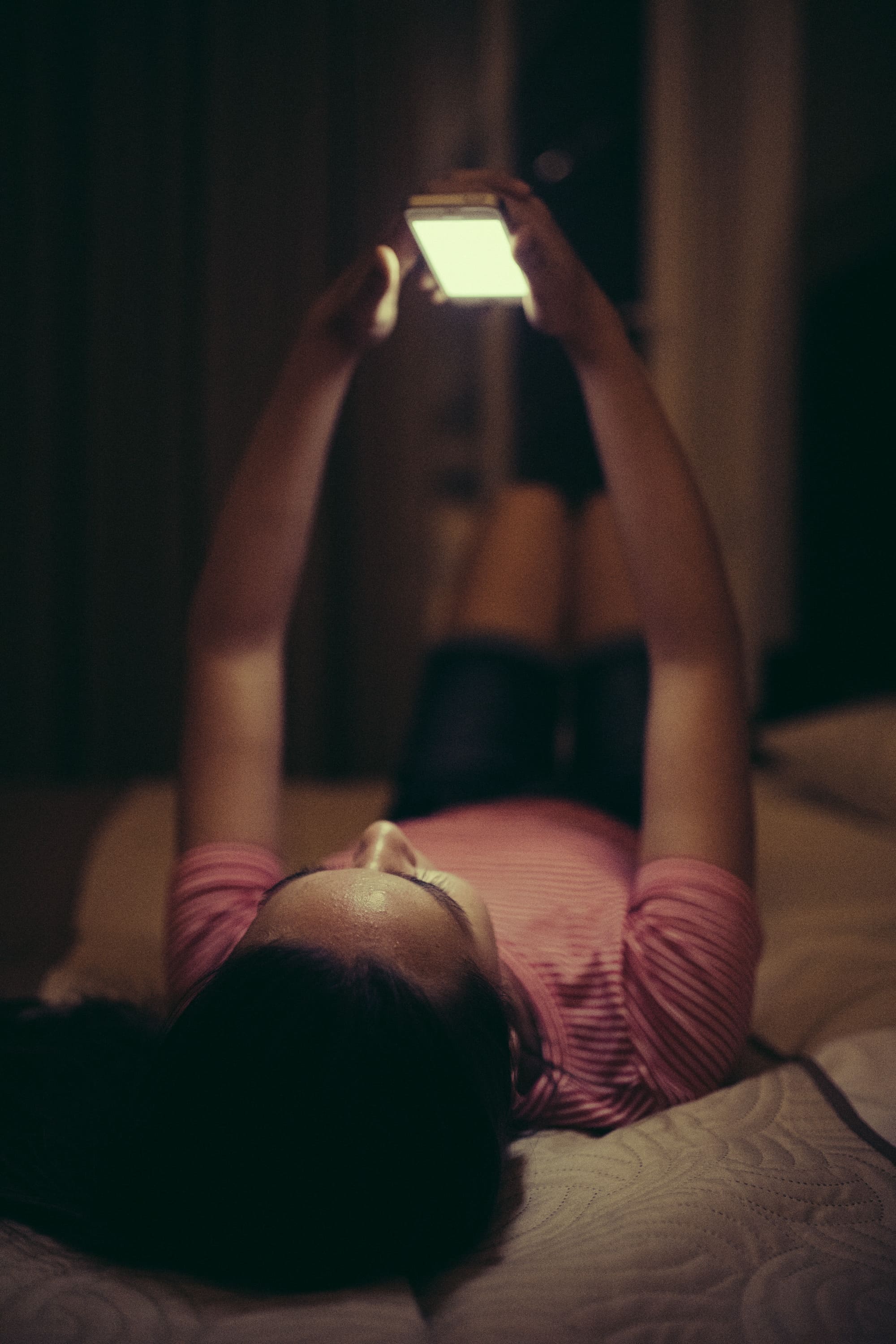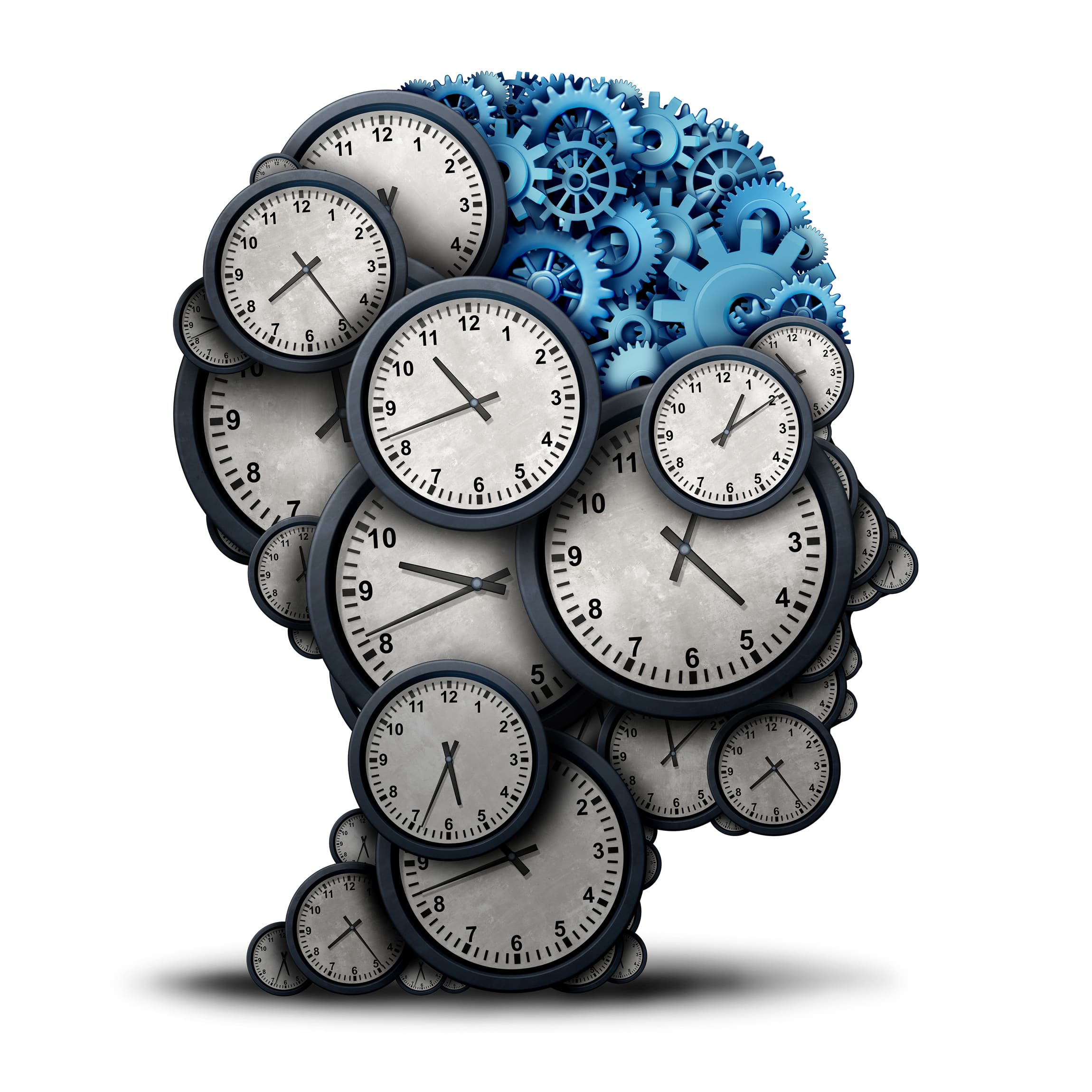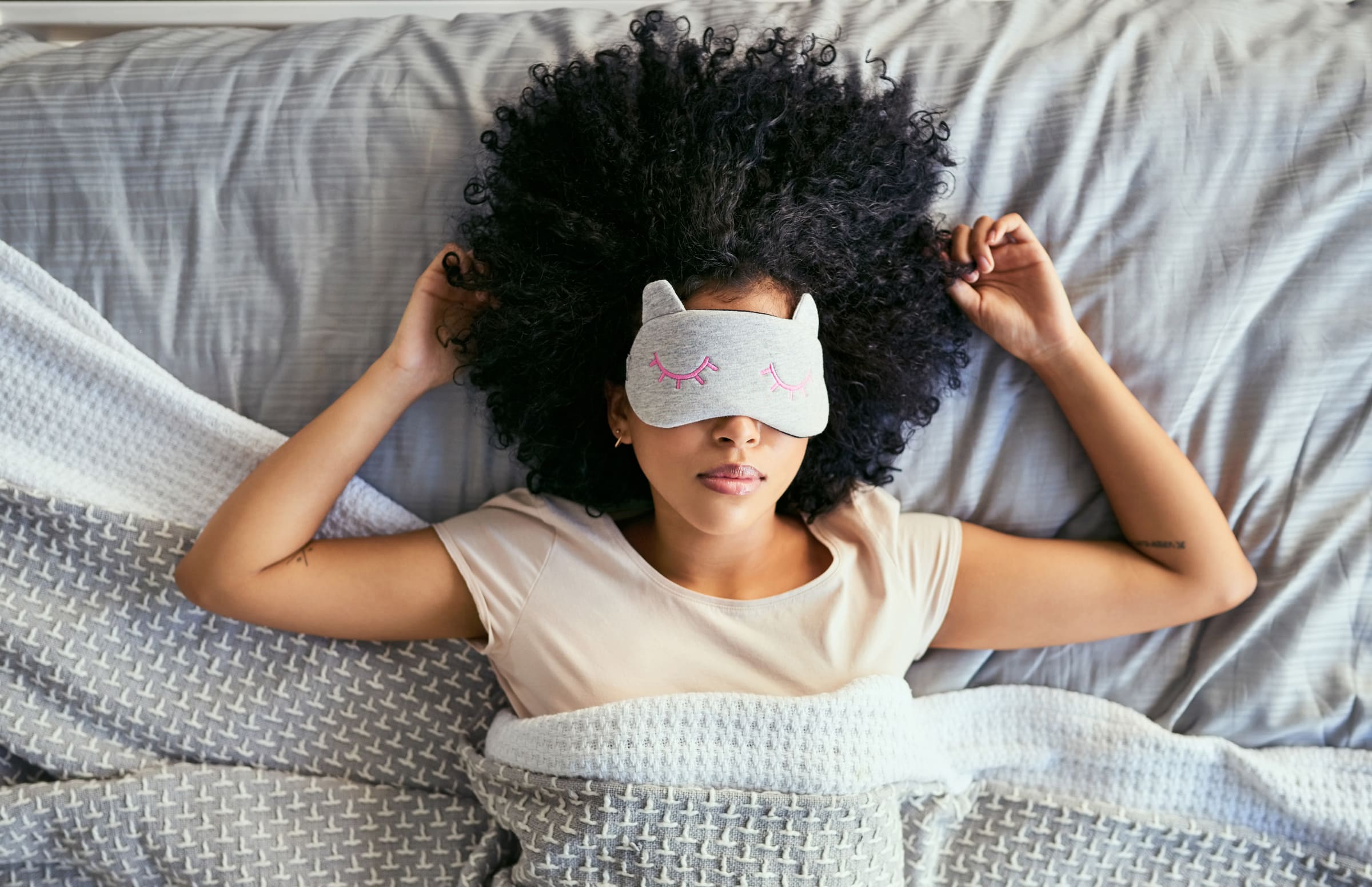Electronics’ Effect on Your Sleep
The bright blue light emitted from your electronics has a “dark side”: it can stimulate you before bed and disrupt your sleep/wake cycle.
Before artificial lighting was introduced to our daily living, the sun was our major source of light. When the sun went down, people used candles or oil lamps for a light source which only emitted a soft glow. So basically, people spent their evenings predominantly surrounded by darkness, which incidentally, prepared them well for slumbering through the night.
Natural light, the rising and setting of the sun, works symbiotically with our body’s built in circadian rhythms (body clock) over a 24 hour period. Artificial light at night can “trick” the brain into thinking it’s time to stay alert which then inhibits the the release of melatonin–our sleep hormone. Without melatonin in the bloodstream, the onset of drowsiness at night is suspended.
If you are a nighttime technology-user, you may not be aware that the artificial light (blue light) on your screen, can physiologically and psychologically stimulate you and make it harder to settle down to sleep. As the brain is stimulated by the continuous bright light, your mind stays engaged with the absence of melatonin.
What is Blue Light?
Not all colors of light have the same effect when our eyes are exposed to it. Blue light emitted from screens on our computers, tablets, cell phones, and televisions suppress the production of our sleep hormone: melatonin.
The sensory membrane at the back of our eyes, the retina, contains microscopic light-sensitive cells that respond depending on what type of light is being perceived. Bright light in the eyes sends the message for a protein called melanopsin to be continually regenerated within these cells which in turn suppresses the secretion of melatonin, the primary hormone that facilitates sleep.
The short wavelengths of blue light suppresses levels of melatonin more than any other wavelength does. Melanopsin, the protein in the brain that is regenerated by continuous light exposure, plays a key role for synchronizing our internal clock. After just 10 minutes of bright light, melatonin secretions are halted by this protein and bedtime is delayed. This could be especially problematic for teens since they tend to stay up later in general, making them more susceptible to dramatic sleep deprivation.
- Suppresses Melatonin
- Keeps your brain alert
- Wakes you up
- Cuts down the number of minutes people slept
- Leaves you feeling groggy in the morning
- Adversely affects the body’s internal circadian rhythms (body clock)
Your Body Clock
When artificial light does not interfere with our built-in body clock, the natural process of melatonin levels elevating in the bloodstream begins around 9 pm. These levels gradually increase and reach their peak in the middle of the night during our deepest sleep.
The body’s need to sleep is not just for rest in and of itself. The body also needs to sleep in accordance with it’s own internal circadian rhythms. When we tamper with our internal clock and its regulation over sleep, our sleep quality suffers–even if we think we “sleep-in” to make up for an insufficient amount of night’s sleep.
Sleep is the way our body restores itself each night. So, whenever we deprive ourselves from natural sleep rhythms, we are also depriving ourselves of restoration. Restoration is a vital part of guarding against disease, and other physical ailments.
- Mood problems, including anxiety and depression
- Increased risk of accidents due to drowsiness
- Impaired memory and ability to learn
- Heart attack
- Obesity and type-2 diabetes
- Various cancers
Bedroom Lighting
In our modern life, we are continuously exposed to artificial light. Most workplace settings involve screen time on computers and fluorescent lighting; and, this is compounded by personal time spent on our cell phones, kindles, and even our car screens throughout the day.
With the goal of preparing yourself for the best sleep, start from the beginning of your day: expose yourself to the natural light of the sun as much as you can throughout your day. Then, take a close look at your light exposure as you enter the “bedtime” hours. Ideally, avoid looking at bright screens beginning two to three hours before bed. Reading a book is the perfect alternative!
Tips for Bedroom Lighting:
-
LED lights have become popular for their energy efficient and money saving qualities compared to the old-fashioned incandescent light bulbs we are transitioning from now. However, these LED lights produce more blue light. While during the day there may be no harm caused by their modern benefits, we ought to be more conscious of how they interfere with our much needed prepartion for slumber.
-
Shop for red LED nightlights because they have the least power to shift circadian rhythm and suppress melatonin.
-
Smart Bulbs—these bulbs can be programmed to switch from warm (dimming) light to cool (rising) light in synchrony with your bedtime and when your morning alarm goes off.
-
There are high-tech bedroom lamps available now that mimic the colors of sunrise to optimize your body’s natural circadian rhythm when sunlight is inconsistant.
-
Fluorescent lights can be coated inside the bulbs so they produce a warmer, less blue light.
-
The simplest solution that is no longer just for primadonnas: a sleep mask
Your Mattress Will Complete You
As we learn more and more from sleep science and technology, we ought to celebrate that knowledge!
Don’t let modern advancements intimidate you, rather, we should embrace it! Because, combining our knowledge about biological circadian rhythms with the options you have today in mattresses allows you to customize your sleep needs more than ever.
For example, take a look at the Rest™Bed: https://mattressexpressny.com/mattresses/rest/
This technology allows you to control every aspect of your sleeping surface with five different zones controlled by your remote electronically:
-
Connectivity–WiFi tracking of your sleep patterns
-
Sensors–monitors pressure points
-
Data–compiles info on how to regulate mattress support for your spine
-
Position Detection–adjusts to you and lets you move while you sleep
Understanding how your mattress affects your lifestyle is commonly overlooked. After all, many of us still find rugged camping out in nature to be a rehabilitating experience. But when you confront all the weight you carry in your real life, day to day, it’s unavoidable to think outside of the tent. At the end of the day, you need that weight lifted as you fall into a blissful bed.
Come visit Mattress Express for a mattress that will make you feel like floating in candlelight.




